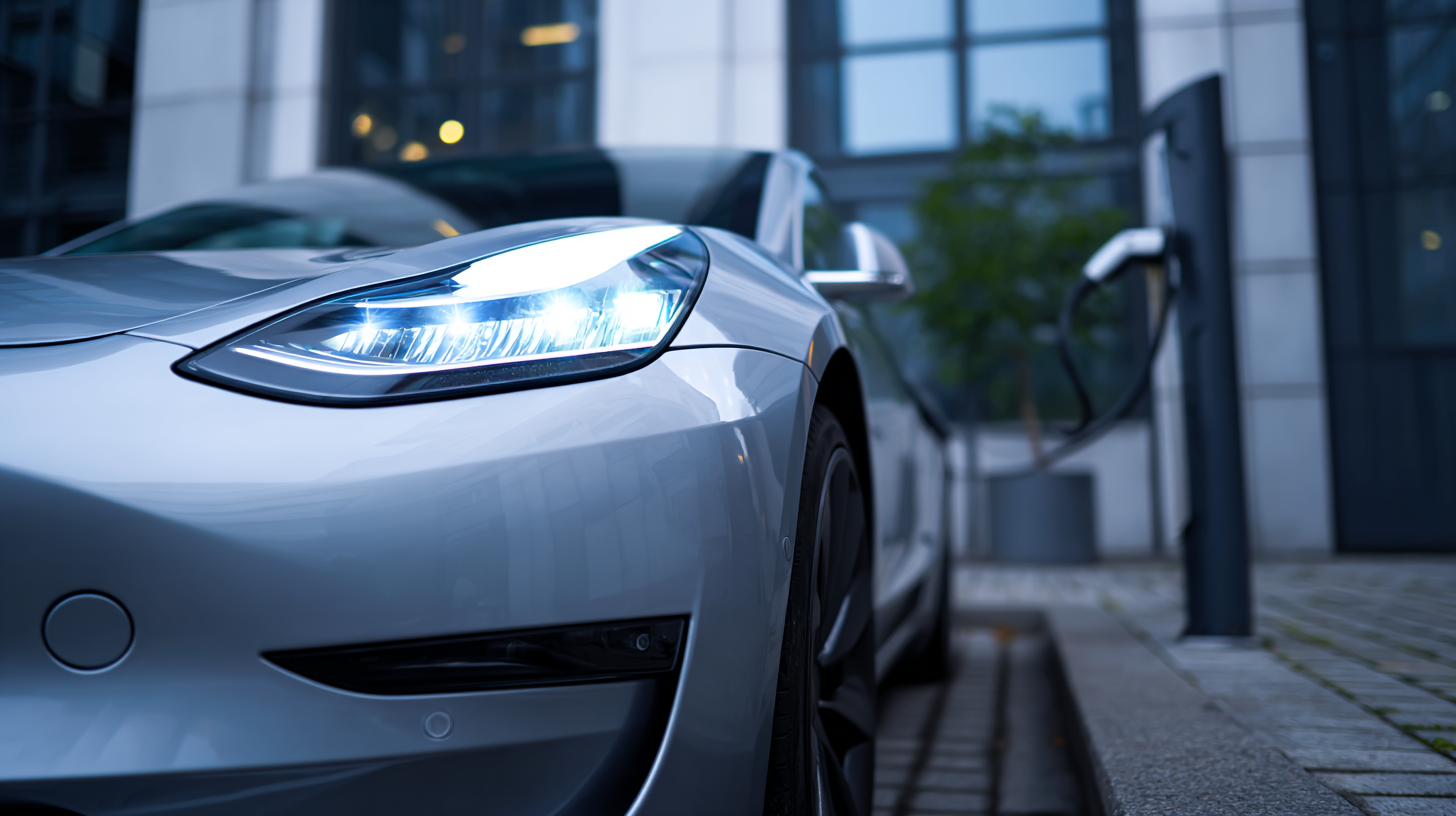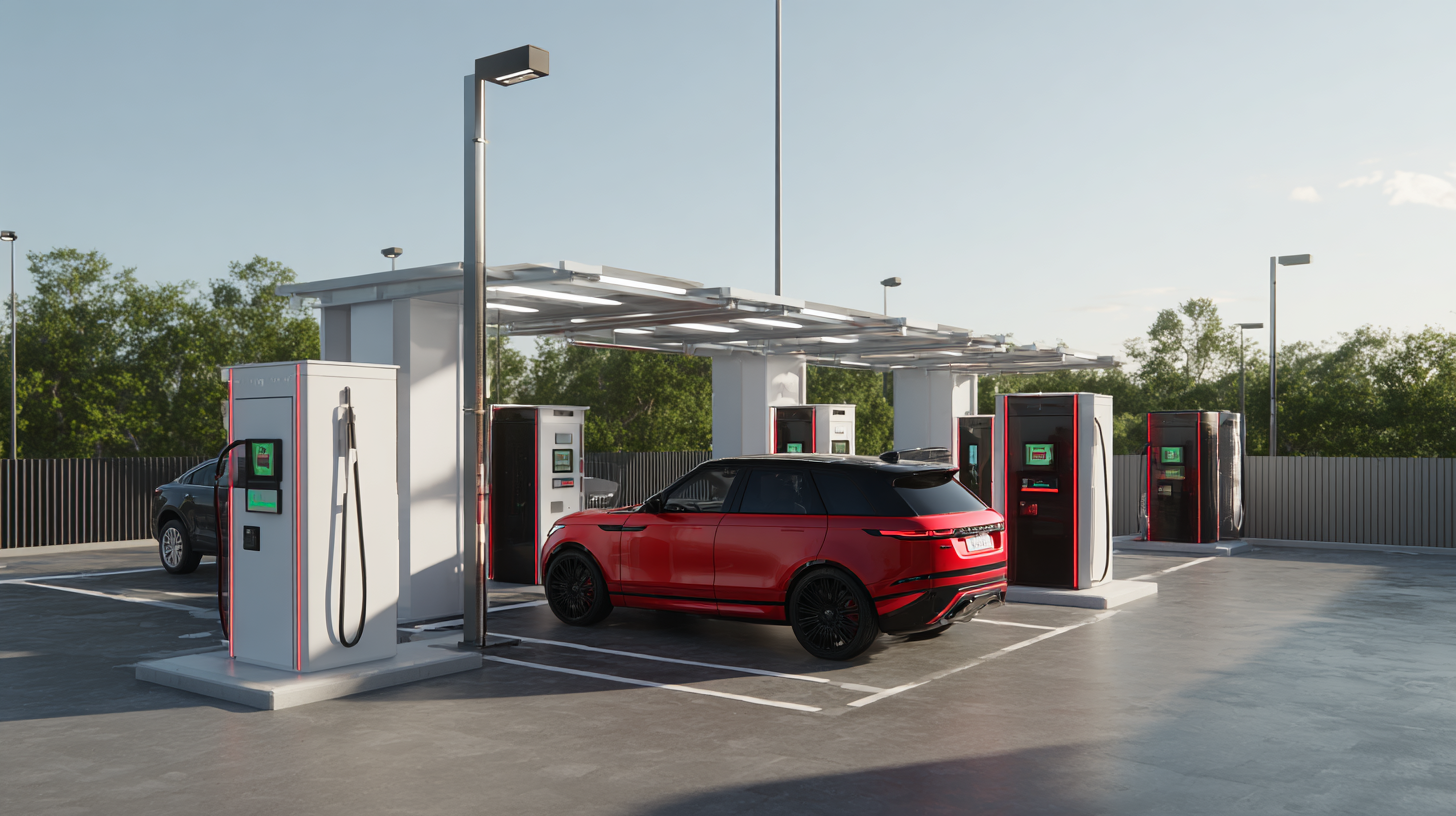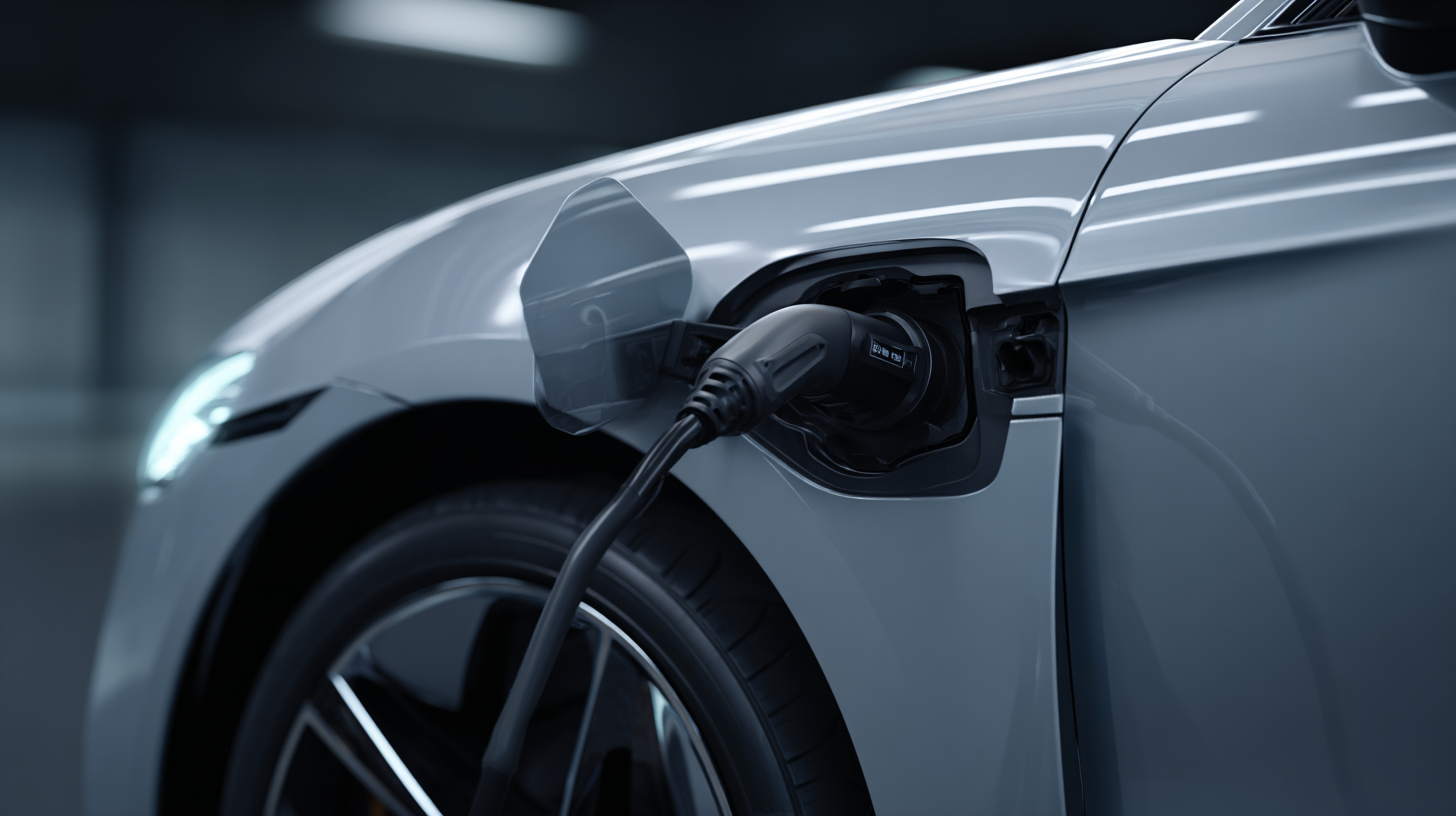As the global shift towards electric vehicles (EVs) accelerates, the demand for high-quality EV Fast Chargers becomes increasingly crucial for buyers worldwide. According to the International Energy Agency (IEA), the number of electric cars on the road reached over 10 million in 2020, with projections estimating that this figure could rise to 145 million by 2030, underscoring the pressing need for efficient charging infrastructure. EV Fast Chargers play a vital role in easing range anxiety and promoting EV adoption by significantly reducing charging times compared to traditional chargers. With various types of chargers available, ranging from Level 2 AC chargers to Level 3 DC fast chargers, understanding their unique characteristics and suitable applications is essential for consumers and stakeholders. This blog will delve into the essential features that make the best EV Fast Chargers indispensable for today's global buyers, ensuring they can meet the growing demand for efficient and reliable charging solutions.

The rapid growth of electric vehicles (EVs) has amplified the importance of high-performance fast chargers. To be truly effective, an EV fast charger must possess certain key technical specifications. The charging speed, defined in kilowatts (kW), is paramount; chargers that operate at 150 kW or higher can replenish most EV batteries in under an hour. Another crucial aspect is the compatibility with various EV models, which ensures a wider user base. Furthermore, advanced thermal management systems are essential to prevent overheating during rapid charging.
When evaluating fast chargers, keep these tips in mind: First, check the charger’s power output and ensure it aligns with your EV's battery capacity for optimal charging times. Secondly, consider the availability of connectors; the more types a charger accommodates, the easier it will be for diverse EV models. Lastly, pay attention to user-friendly features such as mobile app integration for monitoring charging status and locating stations, which can enhance your charging experience significantly.
As the demand for EV infrastructure grows, understanding these key specifications will empower buyers to select the most efficient and reliable solutions for their needs.
When it comes to electric vehicles (EVs), charging speed is a critical consideration for buyers around the globe. The kW ratings of fast chargers play a significant role in determining how quickly an EV can be charged. Higher kW ratings indicate that more power is being delivered to the vehicle, which translates directly to reduced charging times. For example, a 150 kW charger can replenish an EV's battery much faster than a standard 7 kW home charger, making it invaluable for long-distance travel or busy lifestyles.
Understanding the importance of charging time can help potential EV buyers make informed decisions. The ability to rapidly charge an EV in under an hour is a game-changer, especially in a fast-paced world where time efficiency is paramount. Additionally, as EV technologies evolve, charging infrastructure must keep pace to support the growing number of electric vehicles on the road. Fast chargers with high kW outputs not only enhance convenience for users but also spur the expansion of EV adoption by alleviating concerns related to range anxiety and charging accessibility.
The rise of electric vehicles (EVs) has significantly increased the demand for fast charging infrastructure, prompting a comparative analysis of market leaders in fast charger technology. According to a report by BloombergNEF, the global fast charger market is projected to grow at a compound annual growth rate (CAGR) of 30% through 2030, underscoring the urgency for manufacturers to enhance their offerings. Key players such as Tesla, ChargePoint, and ABB have been at the forefront, emphasizing features like interoperability, ultra-fast charging speeds, and advanced connectivity options to meet diverse consumer needs.
Tesla's Supercharger network remains a benchmark with its V3 technology, boasting charges up to 250 kW, allowing drivers to add around 75 miles of range in just 5 minutes. Meanwhile, ChargePoint focuses on a more flexible model, catering to both commercial and residential settings with a range of chargers that support various plug standards. A report from MarketsandMarkets highlights that the focus on user experience, such as payment ease and real-time availability updates through mobile apps, will be crucial in distinguishing leaders from competitors in this rapidly evolving market.

In the rapidly evolving world of electric vehicles (EVs), the importance of safety standards and certifications in fast charging stations cannot be overstated. As global demand for EVs surges, buyers must prioritize chargers that comply with established safety protocols to ensure reliable and secure charging experiences. Certification processes, such as the rigorous Eichrecht standard, serve as a benchmark for quality and safety, ensuring that charging stations are built to withstand the challenges of high-frequency use and environmental conditions.
When selecting a fast charger, it's crucial to consider the certifications it holds. This not only indicates compliance with safety regulations but also reflects the manufacturer's commitment to delivering a reliable product. Look for certifications that enforce stringent testing, as they significantly reduce the risks of electrical faults, overheating, and other hazards that could endanger users or damage vehicles.
Additionally, buyers should seek chargers equipped with advanced safety features, such as overcurrent protection and temperature monitoring. These features enhance the overall safety of the charging process, providing peace of mind while users power up their EVs. Always prioritize chargers backed by solid certifications and safety standards to ensure a trustworthy and efficient charging experience.

When evaluating the best fast EV chargers, cost-effectiveness plays a pivotal role for global consumers. Buyers are increasingly focused on the return on investment (ROI) associated with their charging solutions. A fast charger that may seem expensive upfront can save significant amounts in the long run if it can deliver a quicker charge, thereby reducing downtime and providing more efficient energy use. Consumers should consider the total cost of ownership, which includes installation, maintenance, and energy consumption, rather than merely the purchase price.
Furthermore, global buyers must assess the compatibility of fast chargers with their specific EV models and the availability of charging networks. The more accessible and user-friendly the charging solution, the better it aligns with the needs of drivers across various regions. Evaluating local electricity tariffs, incentives, and potential subsidies can also impact the long-term savings from investing in a fast charger. By taking these factors into account, consumers can better understand how a reliable, cost-effective fast charger not only enhances their driving experience but also serves as a smart financial decision.
| Charger Type | Average Cost (USD) | Charging Speed (kW) | Installation Cost (USD) | Total Cost of Ownership (5 Years) (USD) | Estimated ROI (Years) |
|---|---|---|---|---|---|
| Level 1 Charger | 300 | 2.4 | 100 | 500 | 10 |
| Level 2 Charger | 600 | 7.2 | 200 | 1,200 | 8 |
| DC Fast Charger | 15,000 | 50 | 5,000 | 30,000 | 3 |
| Ultra-Fast Charger | 25,000 | 150 | 10,000 | 70,000 | 2 |
